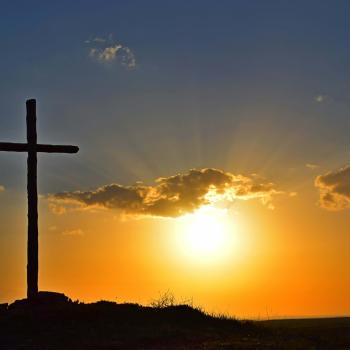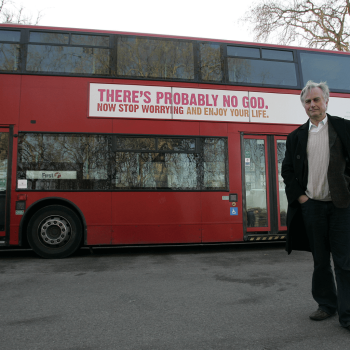Comparative Theology in this sense is worthwhile even for atheists, since it does not automatically entail endorsing the theologies it compares any more than researching racism makes one racist, or taking art history necessitates daubing paint to canvas ourselves. Will Deming elaborates:
For the religious, the study of religion can give one a deeper appreciation for his or her own religious tradition . . . It also enables a person to articulate his or her tradition better to others, either to edify one's own group or for purposes of evangelism or interfaith dialogue. For both the religious and the nonreligious -- the atheist, the agnostic, or the comfortably uninterested -- an appreciation of religion gives one insight into dealing with religious people of all sorts.
Gary Kessler recognizes religion as "a force that influences for good or for ill, the lives of practically everyone who is alive. So much of human history and culture remains a mystery if we cannot comprehend the role religion has played and continues to play in the development of human institutions, values, and behavior." For example, "American culture . . . cannot be fully understood without knowing something about the role that Christianity played in shaping its political, judicial, and educational institutions, not to mention . . . individual freedom and human rights . . . religious ideas were used to promote the destruction of indigenous peoples and to end it, to promote slavery and to stop it."
Karen Farrington likewise extols, "In his darkest hour it has taken more than food and water to sustain benighted man. Religion has been his comforter, his prop, his reason for existing." Comparative Theology strives to ascertain why, in what way, and to what end.
Fourth, while it has been said one ought not to talk politics, sex, or religion in polite society, Comparative Theology concerns politics, sex, and religion! Studying themes that matter intensely is enlightening and invigorating, yet it can evoke strong emotions by touching on topics intensely personal.
Unlike some religion professors, I am repulsed by university and self-appointed faith-terminators who "shoot to kill" students' religious beliefs. Most students have few tools and limited time to winnow wheat from chaff flung by hostile, heavily armed authority figures. I hope religious and secular students alike find their preconceptions challenged by religious and theological inquiry (cf. James 1:2-5), but while spiritual depth is a worthy goal for Comparative Theology, spiritual death is not. In the words of Alex Shand and (purportedly) Cardinal John Henry Newman, universities and Comparative Theology within and beyond ought to be where, "mind clashes with mind, and sparks of brilliant intelligence are set flying, as from the sharp contact of flint striking upon steel." Or, to use two complimentary metaphors, Comparative Theology ought to serve as a womb for nurturing seeds of creativity and a marketplace for confronting, analyzing, and ultimately accepting or rejecting ideas.
Father Francis Clooney contends that when we practice Comparative Theology, "If we choose to remain in our original tradition, remaining is now a real choice made in light of real alternatives." Even so, such variables must be balanced with vulnerability inherent to subjecting personal beliefs to scrutiny and mutually seeing ourselves as others see us. As W.B. Yeats poeticized:
Had I the heavens' embroidered cloths,
Enwrought with golden and silver light,
The blue and the dim and the dark cloths
Of night and light and the half-light,
I would spread the cloths under your feet:
But I, being poor, have only my dreams;'
I have spread my dreams under your feet;
Tread softly because you tread on my dreams.
If the fear or awe or reverence of the Lord is the beginning of wisdom (Psalm 111:10; Proverbs 9:10), then comparing notes and collaborating with past and present God-fearers from every nation, tribe, and tongue (Revelation 5:9-10, 7:9, 14:6) is a productive subsequent step whereby Comparative Theology gathers the spiritual "wealth of nations" (Isaiah 66:12). If all truth is God's truth and has its source in the Holy Spirit (cf. John 14:17), we must be free to explore it. St. Augustine said, "Every good and true Christian should understand that wherever he finds truth, it is his Lord's." Process theologian John Cobb concurs, "Hebrews were not (always) faithless to Yahweh when they adopted and adapted from Egyptians and Persians," nor are Christians necessarily faithless if they adopt or adapt wisdom from science or "Jews, Hindus, Buddhists, Muslims and primal peoples."
Lack of faith expresses itself in fear of being affected by the wisdom of other communities. If we trust Jesus Christ as our Lord and Savior, we have no reason to fear that truth from any source will undercut our faith. Indeed, we have every reason to believe that all truth, wisdom and reality cohere in him . . . faith in Jesus Christ encourages and even requires us to assimilate into our tradition what others have learned . . . It is incumbent upon us as Christians to transform ourselves by being open to this wisdom and goodness and learning all we can from it. It is also incumbent upon Christians to share the saving wisdom that we have derived from our own tradition. Listening to others and witnessing to them are not in conflict; in fact, as we are transformed by what we learn from others, our witnessing may become far more convincing to them.




